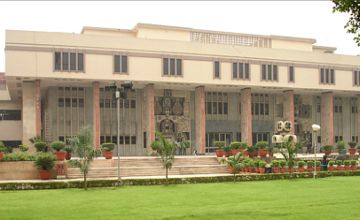A judge who does not record court proceedings "honestly and fairly" does the greatest injustice to litigants, the Delhi High Court has observed while transferring a corruption case from one trial court to another.
The high court, which appreciated the efforts of the special judge to expedite the trial in the case, said it does not mean that while doing so the lower court can act in a "brazen and uncompassionate manner".
Advertisement
"A judge who does not honestly and fairly record the proceedings, does the greatest injustice to parties. A judge is supposed to have no personal interest in a case being tried or dealt with by him. He is always expected to truthfully record the proceedings conducted by him," Justice Vipin Sanghi said.
"It is for this reason that the proceedings recorded by a judge in his orders are accepted as true. If a judge breaches this trust reposed in him, it reflects on his credibility and on his independence and impartiality," the high court said.
The court passed the order while transferring a 16-year- old graft case from the court of a special CBI judge here to another trial court.
The high court also reminded the special judge of the aphorism that 'justice should not only be done but also be seen to be done'.
The high court agreed with the submissions of the counsel for the petitioner, an accused in the graft case, that the way the trial judge was conducting the proceedings "smacks of bias" and there was reasonable apprehension that he would not get justice.
"It is clear to me that the special judge, in his haste toconclude the trial, and even otherwise, had conducted the proceedings unfairly and his approach in the case, and the orders passed by him, disqualify him from proceeding any further in the matter. I am satisfied that a fair and impartial trial of the petitioner accused cannot be held before the special judge… in the present case," the judge said.
The petitioner's counsel had told the high court that the trial judge had not allowed lawyers to assist his client during the process of admission and denial of documents.
The high court observed that it was the right of the accused to seek advice and assistance of his counsel at all stages of trial, irrespective of whether he is literate or illiterate.
Regarding an instance where the trial court had turned down the plea of one of the accused seeking exemption from personal appearance for one day on the ground that his father was admitted in hospital and he was the only son, the bench said, "Heavens would not have fallen, had the accused been exempted" that day.
"It is human beings who are put to trial, and they deserved to be treated as human beings with the same dignity as any other person. Merely because they are accused of an offence, it does not mean that they have lost their right to be treated with respect and dignity.
"Even a convict has to be treated with dignity and courtesy. The court cannot exhibit such indifference in its attitude to the rights and needs of an accused.
"The special judge should have appreciated the anxiety through which the petitioner/accused would have been undergoing on account of his 90-year-old father being admitted in ICU of a hospital while he was away to court to attend the hearing of the case in which he is an accused," the bench said.











